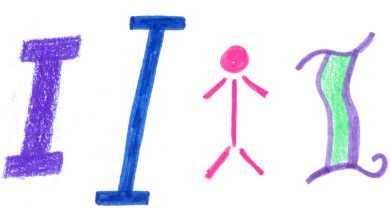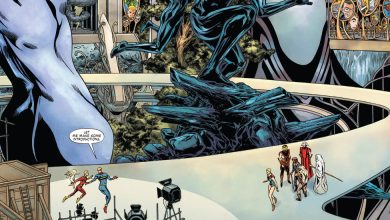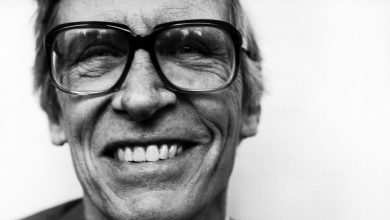‘The Fortune Men,’ a Novel That Remembers a Man Wrongly Sentenced to Death

The Somali-British novelist Nadifa Mohamed’s third novel, “The Fortune Men,” is based on a true story, that of one of the last men in Britain to be sentenced to death.
His name was Mahmood Mattan. The year was 1952. Mahmood was a young Somali sailor in Cardiff, Wales, who was falsely accused of the violent murder of a shopkeeper named Lily Volpert. He was hanged in Cardiff Prison.
Forty-six years later — strange how often this happens with state executions — he was exonerated.
Mahmood was a petty thief with a gambling itch. He was interested in the redistribution of wealth, as a socialist might put it, but on a small, personal scale. His real crime, Mohamed’s account makes clear, is that he was an expendable Black man, a “covetous darkie” in society’s eyes, one who’d had the temerity to marry a white woman.
“The Fortune Men,” which was shortlisted for this year’s Booker Prize, is a potent, pointed novel that nonetheless remains distant — it never quite finds an emotional tone. Let’s talk first about what works, because that’s more fun.
Mohamed writes about port towns, and port bars, with some of the brio that E. Annie Proulx brought to her novel “The Shipping News.” Mahmood — “Moody,” some called him — had belonged to “this army of workers pulled in from all over the world, dredged in to replace the thousands of mariners lost in the war: dockers, tallymen, kickers, stevedores, winch men, hatch men, samplers, grain porters.”
He learns that, as a Black man, he can’t display an ounce of weakness. The police beat men like him on little pretext, and fists land in his face, on rugby days, for no reason at all.
Here’s Mohamed on one of Moody’s coping mechanisms: “Mahmood had learnt to do the Black man’s walk early on in Cardiff: to walk with his shoulders high, his elbows pointed out, his feet sliding slowly over the ground, his chin buried deep in his collar and his hat low over his face, to give nothing away apart from his masculinity, a human silhouette in motion.”
My favorite parts of “The Fortune Men” are when the author sends Mahmood to the movies. He loves films, but they’re school of a sort, too. “Where else could he learn so much about this place he’s decided to call home? Its dreams, its history and its myths? In that dark, flea-ridden hall he’s learnt how to romance girls, how to talk real English, and examined how his neighbors see themselves and how they see him.”
There was a moment in Gary Shteyngart’s novel “Lake Success” (2018), the so-so book he wrote before this year’s excellent one, that’s stuck with me. I can’t find the passage in my copy, but he expressed the notion that we want a sign, all of us, that our journey is somehow a special one.
I thought of Shteyngart while reading the following paragraph, from late in Mohamed’s novel, when Mahmood is in prison. It’s long, so I’ll split it into two chunks. It’s one of the best things I’ve read this year, and it picks up on his love of film:
“It’s not that Mahmood believes himself important, the past few months have torn away that illusion, but he is extraordinary, his life has been extraordinary. The things he has got away with, the things he has been punished for, the things he has seen, the way that it had once seemed possible for him to bend, with great force, everything to his will. His life was, is, one long film with mobs of extras and exotic, expensive sets. Long reams of film and miles of dialogue extending back as he struts from one scene to another.
“He can imagine how his movie looks even now: the camera zooming in from above on to the cobblestone prison yard and then merging into a close-up of his thoughtful, upturned face, smoke billowing out from the corner of his dark lips. A color film, it must be that. It has everything: comedy, music, dance, travel, murder, the wrong man caught, a crooked trial, a race against time and then the happy ending, the wife swept up in the hero’s arms as he walks out, one sun-filled day, to freedom. The image stretches Mahmood’s mouth into a smile.”
Oh, man. And yet such reverberant passages are rare in “The Fortune Men.” The book dissipates a good deal of its energy, especially in its first half, pivoting between the stories of the shopkeeper, her family, Mahmood’s estranged wife and their sons, and that of Mahmood himself. There is more summary than scene.
Little momentum builds. When it threatens to do so, the story feels hemmed in by the details of Mahmood’s actual life. The novel is semidetached. If this book were a shell game, you would never wonder where the pea is. Your brain gives it three stars but your heart only two.
We get little sense, for example, of what drew Mahmood and his English wife together. I missed having scenes of their courtship, their wooing, which might have provided a way to warm him up as a character.
Mahmood had few friends and many enemies. He was increasingly isolated, out on a limb, in England. The fact that he was a Black man made it easy for someone to come along and cut off the branch.
This is a hit-and-miss novel, but Mohamed is a big talent, and she’s only getting started.




